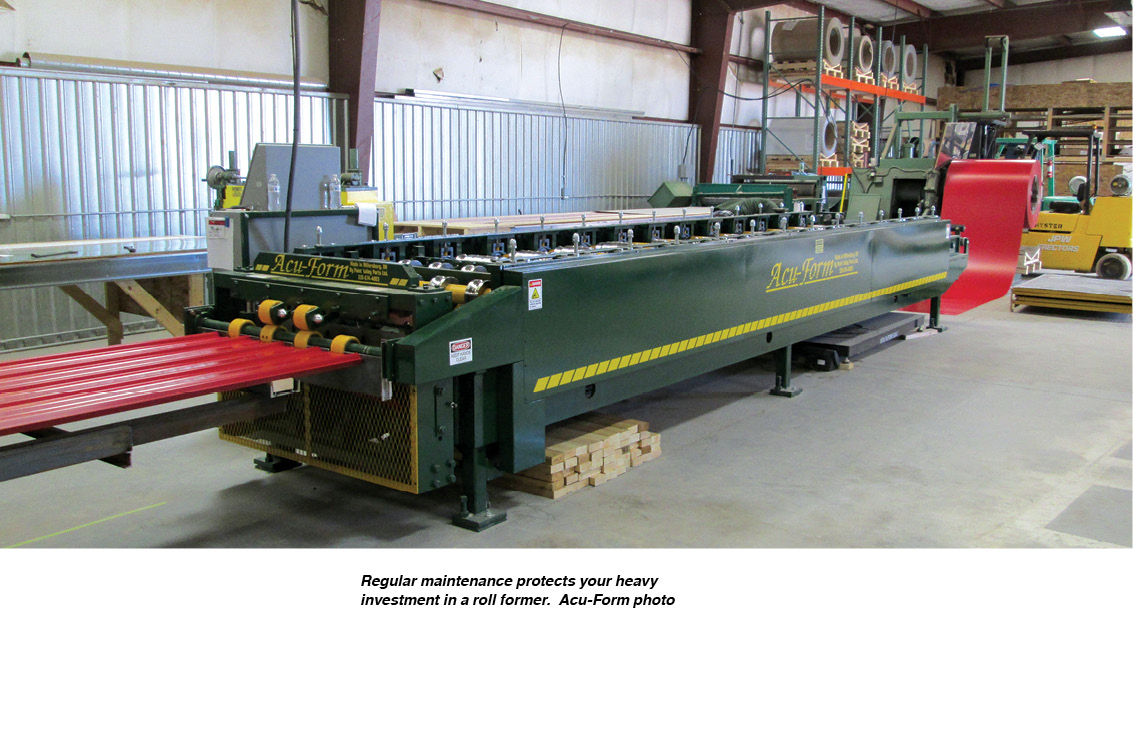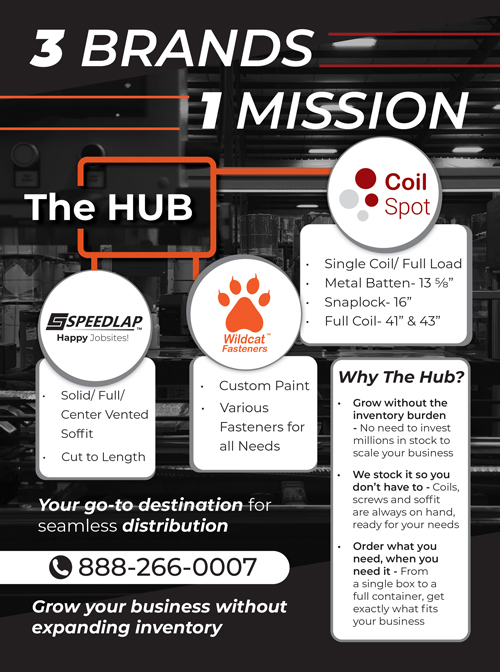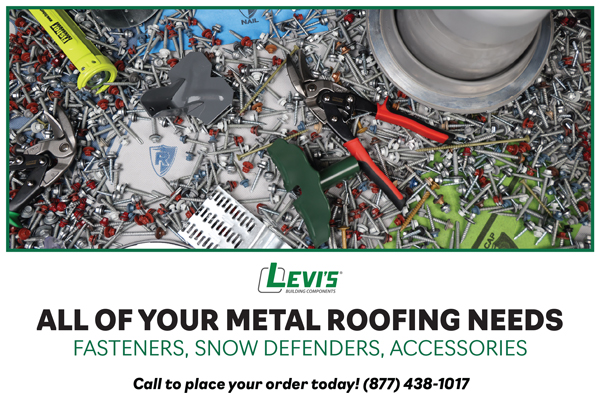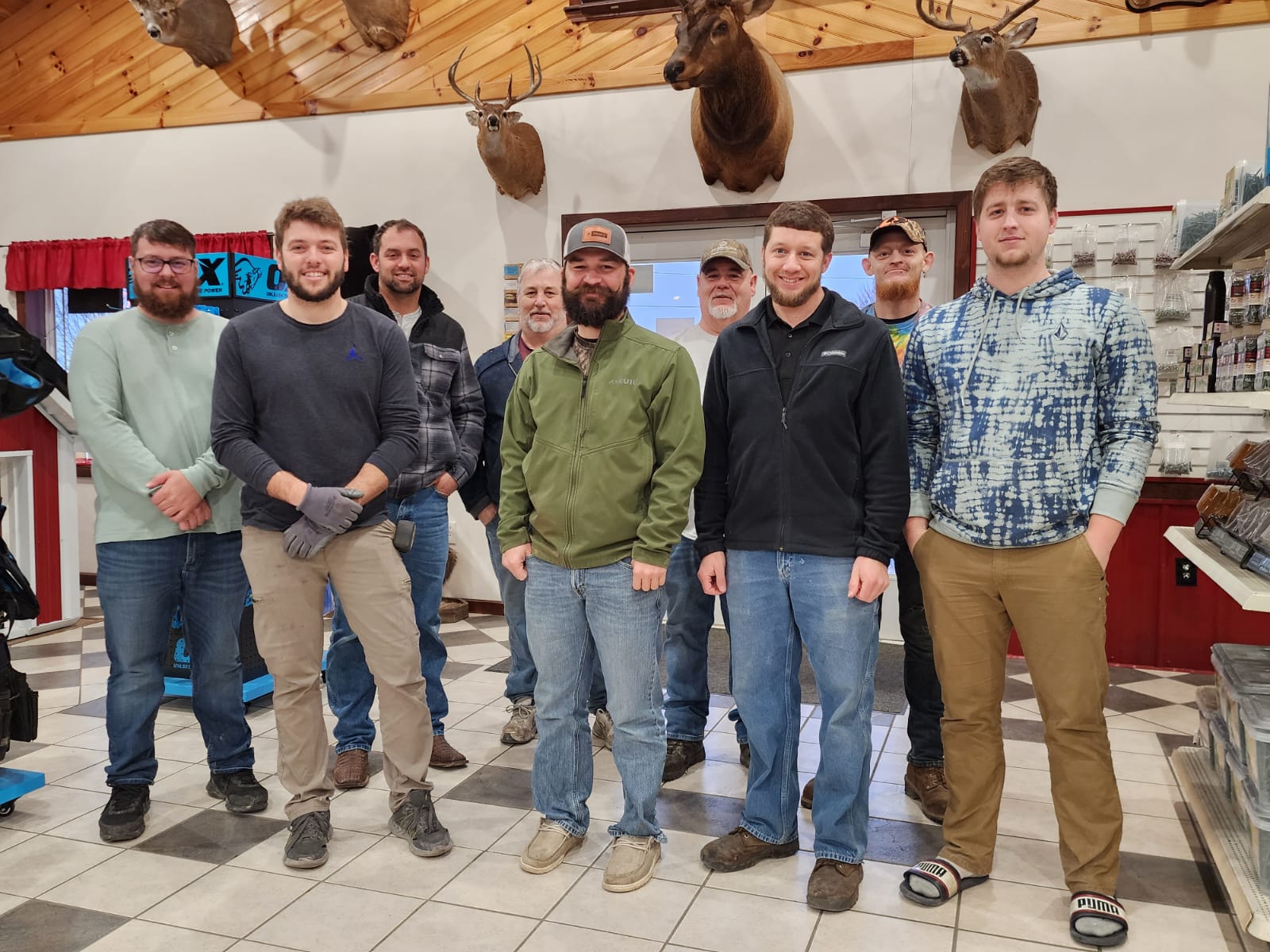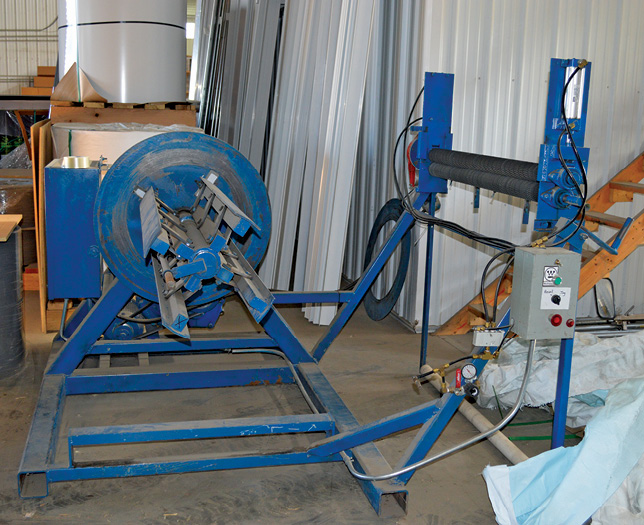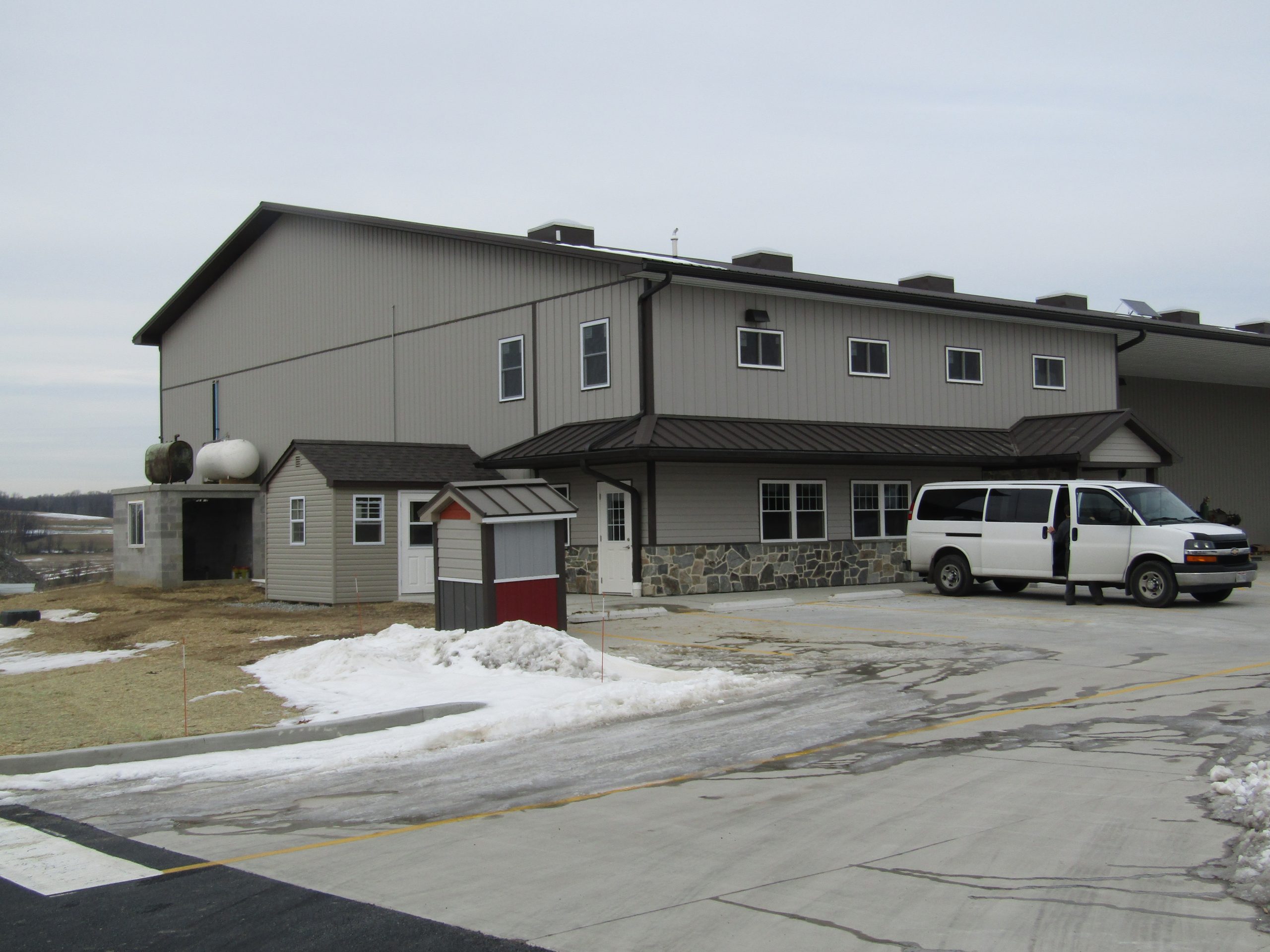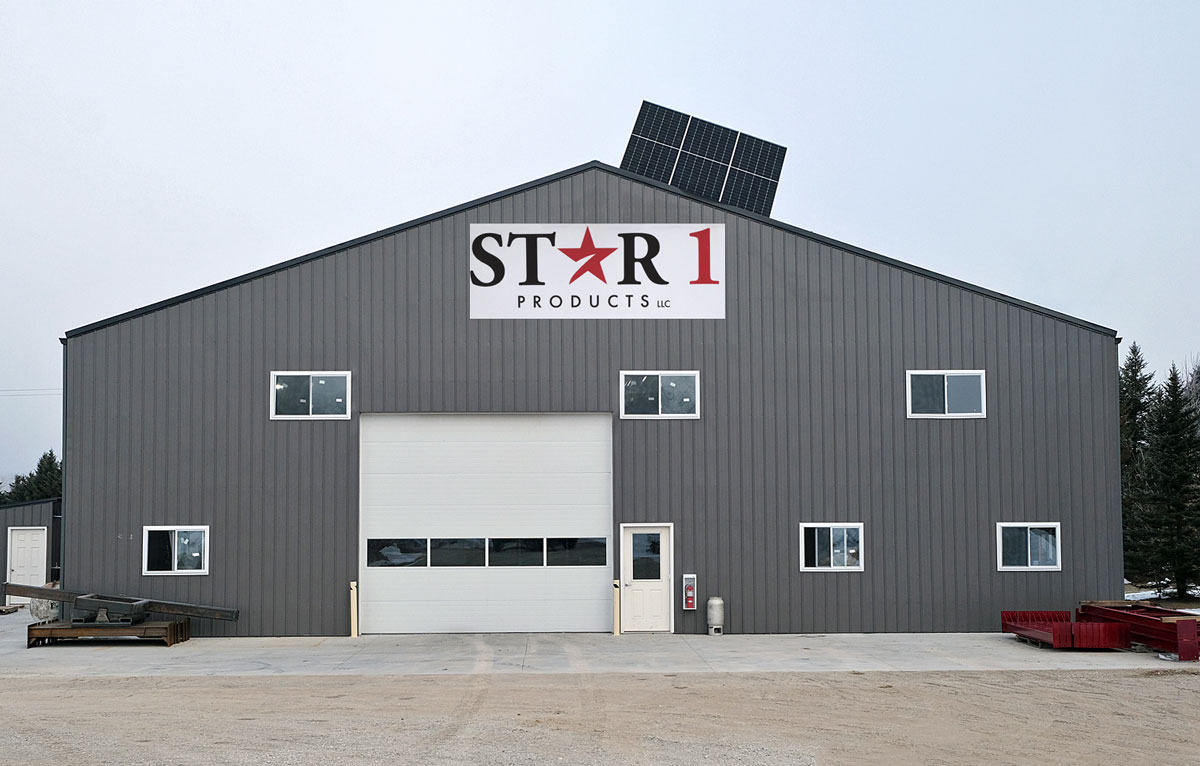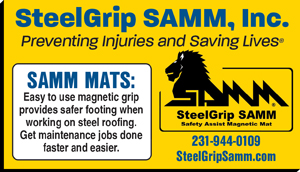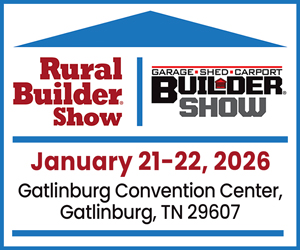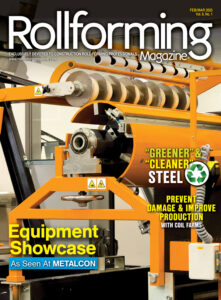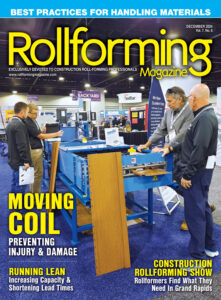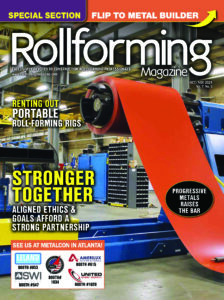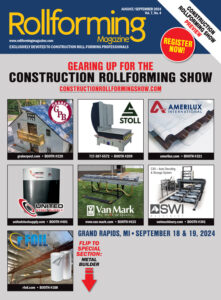Acu-Form hit the ground running and hasn’t looked back
Paint Valley Parts knows a thing or two about the challenges of expansion in the roll-forming world. The parent company of Acu-Form took on the new business in 2010, just as the U.S. was working its way out of the Great Recession. It has been a successful venture, but not without a few lessons learned along the way. Their experience provides a good case study for what works when looking at expansion of an existing business.
Wayne Troyer joined Acu-Form after the purchase. He explained that the Acu-Form brand had been established in Michigan, but the owners wanted to sell the business, and they approached Paint Valley Parts with a proposal. It wasn’t just the owner of Paint Valley who made the decision to buy. He enlisted the input of employees, the people who would be tasked with taking on the work of the new business.
“The owner was skeptical about the purchase,” Troyer said. “He and a few key employees went up to Michigan to look things over, and the employee response was, ‘we want the challenge.’”
That kind of buy-in from the employees was valuable in the months ahead as a new building for the business was constructed, the equipment was shipped and installed, and the work of creating a viable roll-forming machine commenced.
Paint Valley Parts was a good fit for the transition. The company had started out in 1984 repairing heavy equipment by cannibalizing used equipment for parts. They later replaced that practice by fabricating their own aftermarket parts. They thus created a talented pool of machinists and metal fabricators.
Troyer came onboard with Acu-Form in early 2011. He said the first major challenge was translating the blueprints provided by the original owners: “reading their prints versus our prints,” he said.
Learning the roll-forming business was essential and another challenge.
“Just trying to learn the whole thing at one time was difficult,” Troyer said. “Metal can do so many things when you start forming it.” He took training courses in roll forming “trying to figure out what we could do or what would help.”
It was a work in progress. “I remember those first three years; it was like, which way do I turn?” he said. “We’d build a machine and it would run great. We’d build the next machine, and you’d think you had it exactly alike, but it would come out different.”
But success wasn’t far off. “It’s been great for us,” Troyer said. “We never dreamed at that point that it would turn out the way it did. We only had 16 employees, now we have 42.”
Thirteen employees are devoted full time to Acu-Form, with others floating back and forth between that and the parts division.
Troyer remembers thinking that the good times would be short-lived. “I thought we might have a downturn and we might have to try to get into other things,” he said, “but we never looked back. Nine years later we keep going, and growing more and more.”
Quality over quantity
The problem with growth is that you have to manage it carefully. Their first year, Acu-Form produced about 30 machines. “The following year we put out 60-some machines,” Troyer said.
Those second 60 were every bit as much of a challenge as the first 30 because the business was still getting established. “Everybody was still learning,” he said. The machines were produced, but more servicing was required on those early machines.
The third year they regrouped. “We came back into the following year and said, okay, here’s where we’re at: let’s not promise too many machines; let’s make our machines right when they go out.
“We started having more quality control and it made a big difference,” Troyer continued.
Today, Acu-Form creates more machines yearly than ever before. They specialize in machines that are used in commercial, post frame, residential roofing, and accessory markets.
“We started out with 10 different profiles and now have over 40,” Troyer added. But today the company is a seasoned player in the roll-forming world and has a solid understanding of their products and their business.
With many trained machinists on staff, Acu-Form creates most of the components they use for their own machines, thus controlling the quality and productivity. “Having experienced personnel make the same machines over and over again makes a difference,” Troyer said. “We can do everything inhouse and we know it’s right when it goes to the customer.”
He added: “Everything is done in-house except the gearing boxes, bearings, sprockets, etc.; all the machines, all the dies get done inhouse, that way we have quality control over everything. We know that our parts are good when the machine is ready to assemble.”
Tips for Healthy Growth
As someone who has been on the front row of expansion in the roll-forming industry, Troyer has seen where business owners have made mistakes and he offers these reflections:
Be Cautious of Coil: “There’s a lot of difference from one coil to the next. Your metal doesn’t form the same,” he said. “The one thing we see a lot, if people run No. 1 material, the machine works great, but you see people who want to use No. 2 materials and it just doesn’t form like your No. 1; you get so much variety.”
Hiring Attitude Over Experience: “It’s almost easier to hire a person with a good attitude … rather than have someone who comes in with some experience in metalworking,” Troyer said of the situation at Acu-Form.
The reason is because the experienced machinist may think they already know how to do the work.
“When getting into building machines, where you have tight tolerances, some of the [experienced] guys have a harder time grasping and actually seeing what we’re doing,” he said.
An employee with a good attitude with no prior skills, however, is often more flexible and eager to learn and change.
“The personnel we bring in, if they have a good attitude and are willing to work hard, that’s what we like to see,” Troyer said.
Still, taking that new employee and making them an accomplished employee takes time.
“It still takes a year-and-a-half to two years to get them to where you want them, because they have to learn the process of machining, how to manufacture parts, and general mechanics, then they’re ready to assemble machines.”
Don’t Over Promise: If you are expanding your business, make sure you don’t overpromise material or product, thus compromising quality.
“Make sure your quality doesn’t get lost in the shuffle,” he said, “because once you get through the growing pains, you’ll want to be able to stay there and keep selling product. You don’t want to lose your quality in the process and have to start over with something new.”
Take Care of Your Investment With Maintenance: Going into the roll-forming business, or adding a new machine, is a big bite to take, so don’t forget that proper care of the roll-forming equipment can help you avoid costly delays down the road.
“Roll formers will last a long time, but the main thing is doing the maintenance, keeping them clean. That’s something we can’t stress enough,” Troyer said. Acu-Form recommends weekly maintenance. They feel strongly enough about the issue that they are looking to create maintenance routes for interested customers in 2020. RF


